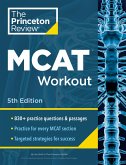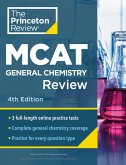Fundamentals of Health Psychology
Herausgeber: Hadjistavropoulos, Thomas; Hadjistavropoulos, Heather D
Fundamentals of Health Psychology
Herausgeber: Hadjistavropoulos, Thomas; Hadjistavropoulos, Heather D
- Gebundenes Buch
- Merkliste
- Auf die Merkliste
- Bewerten Bewerten
- Teilen
- Produkt teilen
- Produkterinnerung
- Produkterinnerung
Bringing together an internationally respected team of experts, the second edition of Fundamentals of Health Psychology continues to offer a comprehensive introduction to the key topics and approaches in the fast-growing field of health psychology.
Andere Kunden interessierten sich auch für
![Princeton Review MCAT Biology Review, 3rd Edition Princeton Review MCAT Biology Review, 3rd Edition]() Princeton ReviewPrinceton Review MCAT Biology Review, 3rd Edition46,99 €
Princeton ReviewPrinceton Review MCAT Biology Review, 3rd Edition46,99 €![Princeton Review MCAT Biochemistry Review, 2nd Edition Princeton Review MCAT Biochemistry Review, 2nd Edition]() Princeton ReviewPrinceton Review MCAT Biochemistry Review, 2nd Edition45,99 €
Princeton ReviewPrinceton Review MCAT Biochemistry Review, 2nd Edition45,99 €![Princeton Review MCAT Psychology and Sociology Review, 4th Edition Princeton Review MCAT Psychology and Sociology Review, 4th Edition]() Princeton ReviewPrinceton Review MCAT Psychology and Sociology Review, 4th Edition46,99 €
Princeton ReviewPrinceton Review MCAT Psychology and Sociology Review, 4th Edition46,99 €![Princeton Review MCAT Physics and Math Review, 4th Edition Princeton Review MCAT Physics and Math Review, 4th Edition]() Princeton ReviewPrinceton Review MCAT Physics and Math Review, 4th Edition46,99 €
Princeton ReviewPrinceton Review MCAT Physics and Math Review, 4th Edition46,99 €![Princeton Review MCAT Workout, 5th Edition Princeton Review MCAT Workout, 5th Edition]() Princeton ReviewPrinceton Review MCAT Workout, 5th Edition43,99 €
Princeton ReviewPrinceton Review MCAT Workout, 5th Edition43,99 €![Princeton Review MCAT General Chemistry Review, 4th Edition Princeton Review MCAT General Chemistry Review, 4th Edition]() Princeton ReviewPrinceton Review MCAT General Chemistry Review, 4th Edition46,99 €
Princeton ReviewPrinceton Review MCAT General Chemistry Review, 4th Edition46,99 €![Princeton Review MCAT Organic Chemistry Review, 4th Edition Princeton Review MCAT Organic Chemistry Review, 4th Edition]() Princeton ReviewPrinceton Review MCAT Organic Chemistry Review, 4th Edition45,99 €
Princeton ReviewPrinceton Review MCAT Organic Chemistry Review, 4th Edition45,99 €-
-
-
Bringing together an internationally respected team of experts, the second edition of Fundamentals of Health Psychology continues to offer a comprehensive introduction to the key topics and approaches in the fast-growing field of health psychology.
Hinweis: Dieser Artikel kann nur an eine deutsche Lieferadresse ausgeliefert werden.
Hinweis: Dieser Artikel kann nur an eine deutsche Lieferadresse ausgeliefert werden.
Produktdetails
- Produktdetails
- Verlag: Oxford University Press, Canada
- 2 Revised edition
- Seitenzahl: 464
- Erscheinungstermin: 10. März 2019
- Englisch
- Abmessung: 257mm x 198mm x 23mm
- Gewicht: 1004g
- ISBN-13: 9780199028641
- ISBN-10: 0199028648
- Artikelnr.: 54941979
- Herstellerkennzeichnung
- Produktsicherheitsverantwortliche/r
- Europaallee 1
- 36244 Bad Hersfeld
- gpsr@libri.de
- Verlag: Oxford University Press, Canada
- 2 Revised edition
- Seitenzahl: 464
- Erscheinungstermin: 10. März 2019
- Englisch
- Abmessung: 257mm x 198mm x 23mm
- Gewicht: 1004g
- ISBN-13: 9780199028641
- ISBN-10: 0199028648
- Artikelnr.: 54941979
- Herstellerkennzeichnung
- Produktsicherheitsverantwortliche/r
- Europaallee 1
- 36244 Bad Hersfeld
- gpsr@libri.de
Thomas Hadjistavropoulos, Ph.D., ABPP, FCAHS is Professor of Clinical Psychology, Research Chair in Aging and Health and Director of the Centre on Aging and Health, University of Regina. He has served as the 2007-2008 President of the Canadian Psychological Association (CPA). His research, which has been funded by the Canadian Institutes of Health Research (CIHR), the Saskatchewan Health Research Foundation, the Canada Foundation for Innovation, AGE WELL Network of National Centres of Excellence and the Social Sciences and Humanities Research Council of Canada, focuses on psychological issues in pain. An area of recent focus has been pain assessment and management among seniors with a special emphasis on seniors who have severe limitations in ability to communicate because of dementia. He has been honoured with numerous prestigious awards including a CIHR Investigator Award, the Year 2000 Canadian Pain Society Early Career Award for Excellence in Pain Research, the Canadian Association on Gerontology Distinguished Member Award, the Saskatchewan Health Research Foundation Career Achievement Award, a Saskatchewan Health Care Excellence Award, and many others. He has also been elected Fellow of the Canadian Psychological Association as well as of the American Psychological Association in recognition of his distinguished contributions to the science and profession of psychology. More recently, he was inducted as Fellow in the Canadian Academy of Health Sciences which represents one of the highest honours available to Canadian Health Scientists. Thomas is Editor-in-Chief of Ethics & Behavior and in the past has served as Editor of Canadian Psychology/Psychologie canadienne, Psychology Section Editor of the Canadian Journal on Aging as well as on other editorial boards. He has published over 160 peer reviewed papers and book chapters as well as five books. Heather D. Hadjistavropoulos (Ph.D. University of British Columbia 1995) is a Professor of Psychology at the University of Regina (U of R), Canada. She founded the Psychology Training Clinic at the U of R in 2002, and trains graduate students in the assessment and treatment of anxiety and mood disorders, commonly among individuals with co-morbid medical conditions. Heather's research is focused on: a) assessing and treating psychological problems that impact health; and b) understanding and improving the quality of health care in an attempt to reduce the burden of illness. Heather received a Canada Innovation Foundation grant to develop a state of the art Clinical Health Psychology research area. She has published and presented her research widely and received funding through the Canadian Institutes of Health Research, Canadian Health Services Research Foundation and the Saskatchewan Health Research Foundation. She has been the recipient of many awards for her research as well as her contributions to training and the profession of psychology. In 2010, Dr. Hadjistavropoulos founded the Online Therapy Unit (onlinetherapyuser.ca). This unit has: 1) overseen the development of a website and policies and procedures for the delivery of therapist-assisted Internet-delivered Cognitive Behaviour Therapy (I-CBT) in Saskatchewan; 2) trained community providers and graduate students on how to use I-CBT; and, 3) coordinated, monitored and evaluated the delivery of I-CBT for multiple conditions. The Online Therapy Unit is having a substantive impact on delivery of psychological care in Saskatchewan and inspiring the development of similar services in other provinces.
* Part I: Fundamentals of Health Psychology
* 1. Introduction to Health Psychology
* Learning Objectives
* What is Health Psychology?
* A Brief History of Health Psychology
* Careers in Health Psychology
* Major Theories and Models in Health Psychology
* - The Biopsychosocial Model
* - Health Belief Model
* - Social Cognitive Theory
* - Theory of Planned Behaviour
* - The Common-Sense Model of Self-Regulation/Illness Representation
* - Cognitive Behavioural Perspective
* - The Transtheoretical Model of Behaviour Change
* Future Directions
* Summary
* Critical Thought Questions
* Recommended Reading
* 2. An Introduction to Body Systems and Psychological Influences on
Health
* Learning Objectives
* Body Systems
* - Introduction
* - The Cardiovascular System
* - The Gastrointestinal System
* - The Respiratory System
* - The Renal System/Urinary System
* - The Immune System
* Psychological Influences on Body Systems
* - The Peripheral Nervous System
* - The Autonomic Nervous System
* - The Endocrine System
* The Development of the Stress Concept
* Emotion
* Psychological Factors in the Development of Medical Illnesses
* - Gastrointestinal Ulcers: Executive Monkeys and Helpless Rats
* - Vasovagal Reactions: A Brief but Dramatic Response
* - High Blood Pressure
* - Other Diseases
* Psychoneuroimmunology
* - Development of the Field
* - Stress, Immune Function, and Illness
* Future Directions
* Summary
* Critical Thought Questions
* Recommended Reading
* 3. Stress, Coping, and Health
* Learning Objectives
* Introduction
* - Good vs. Bad Stress
* - Acute vs. Chronic Stress
* Stressful Situations
* - Job and Primary Role Stress
* - Life Events
* - Caregiver Stress
* - Sociological Stress: SES, Gender, and Race
* Contributors to Stress: The Person
* Contributors to Stress: The Interaction of Person and Situation
* Appraisal
* Coping
* - Problem- vs. Emotion-Focused Coping
* - Social Support
* - The Great Gender Divide
* - Other Coping Strategies
* Stress and Mental Health
* - Stress and Sleep
* - Stress Management
* - Social Networking, Stress, and Online Social Support
* Future Directions
* Summary
* Critical Thought Questions
* Recommended Reading
* 4. Health Psychology within the Health-Care System
* Learning Objectives
* Introduction
* Health Systems in the United States, Canada, and Elsewhere
* Impact of Health Systems on Health Psychology
* Types of Health Services
* Patterns of Health-Care Use
* Medical Service Misuse
* - Overuse
* - Delayed Health Care
* Adherence to Medical Care
* - Definition and Measurement
* - Rates and Predictors of Adherence
* - Improving Adherence
* Patient Satisfaction
* Medical Cost Offset of Psychological Interventions
* Future Directions
* Summary
* Critical Thought Questions
* Recommended Reading
* 5. Prevention of Illness and Health-Promotion Intervention
* Learning Objectives
* Importance of a Healthy Lifestyle
* Core Constructs of the Transtheoretical Model of Behaviour Change
* - Stages of Change
* - Processes of Change
* - Decisional Balance
* Critical Assumptions of TTM
* Empirical Support
* - Stage Distribution
* - Pros and Cons across 12 Behaviours
* - Processes of Change across Behaviours
* - Relationship between Stages and Process of Change
* Applied Studies
* Challenging Studies
* Increasing Impacts with Multiple Behaviour Change Programs
* Applying TTM Interventions to Exercise, Nutrition, and Smoking
* Limitations of the Model
* Future Directions
* Summary
* Critical Thought Questions
* Recommended Reading
* 6. Eating, Smoking, and Recreational Substance Use
* Learning Objectives
* Introduction
* Eating Behaviour
* - Obesity
* - Dieting
* - Eating Disorders
* - Risk Factors
* Substance-Use Behaviours
* - Alcohol
* - Tobacco and Nicotine
* - Other Drugs
* - Risk Factors
* Assessment
* - Eating
* - Substance Use
* Management
* - Eating
* - Substance Use
* - Alcohol
* - Smoking
* Future Directions
* Summary
* Critical Thought Questions
* Recommended Reading
* 7. Health Anxiety and Other Psychological Responses to Bodily
Symptoms
* Learning Objectives
* Introduction
* Common-Sense Model of Illness Representation/Self-Regulation
* - Dimensions of Illness Representations
* - Relationship between Illness Representations and Coping Behaviour
* - Illness Representations and Health Outcomes
* - Determinants of Illness Representations
* Health Anxiety
* - Clinical Considerations
* - Genetics
* - Cognitive Behavioural Model of Health Anxiety
* - Cognitive Behavioural Therapy
* Future Directions
* Summary
* Critical Thought Questions
* Recommended Reading
* Part II: Health Conditions
* 8. Chronic Health Problems: Risk Factors, Prevention, Adjustment, and
Management
* Learning Objectives
* Chronic Health Problems
* - Impact of Chronic Health Conditions
* Cross-Cutting Issues in Chronic Health Conditions: Prevention,
Adherence, and Adjustment
* - Prevention
* - Adherence
* - Adjustment
* Prevention and Psychological Intervention for Chronic Health Problems
* - Prevention and Promotion
* - Psychologists on Social Media
* - Self-Management
* - Psychological Interventions
* Future Directions
* Summary
* Critical Thought Questions
* Recommended Reading
* 9. The Psychology of Pain
* Learning Objectives
* Acute and Chronic Pain, Prevalence, and Medical Management
* Understanding the Nature of Pain
* Theories of Pain
* - The Operant Model
* - The Fear Avoidance Model of Pain
* - The Communications Model of Pain
* - Cognitive Behavioural Conceptualization of Pain
* Psychological Assessment of Pain
* - Full History, Co-Morbidities, Coping Styles, and Overall
Psychological Functioning
* - Dimensions of the Pain Experience
* Pain Behaviour: Its Antecedents, Consequences, and Other
Situational/Environmental Determinants of the Pain Experience
* Effects of Pain on Quality of Life
* Psychological Treatments for Chronic Pain
* Psychological Management of Acute Pain
* Future Directions
* Summary
* Critical Thought Questions
* Recommended Reading
* 10. Cardiovascular Disease
* Learning Objectives
* Cause of Death: Heartbreak
* Cardiovascular Disease Description, Prevalence, and Medical
Management
* - The Disease Process
* - Prevalence and Cost of CVD
* - Medical Management of CVD
* Psychological Factors in Cardiovascular Disease
* - Stress
* - Social Isolation
* - Psychological Disorders
* - Personality
* - Positive Psychology: Resilience and Coping
* Psychological Assessment of Patients with Cardiovascular Disease
* - Depression/Anxiety
* - Social Support
* - Personality Factors
* Interventions for Patients with Cardiovascular Disease
* - Pharmacotherapy (Medications)
* - Psychotherapy
* - Psycho-Educational and Behavioural Interventions
* Future Directions
* Summary
* Critical Thought Questions
* Recommended Reading
* 11. HIV and Sexually Transmitted Infections
* Learning Objectives
* Sexually Transmitted Infections in the National and Global Context
* - Overview of STIs in the United States and Canada
* Psychosocial Risk and Protective Factors in HIV/STI Acquisition
* - Knowledge, Motivation, and Skills
* - Condom Use
* - Number of Sexual Partners
* - Communication
* - Substance Use
* - Personality Factors
* - Health Disparities
* - Stress in People from Ethnic Minority Populations
* - Internet and Social Media
* Psychology of Living with HIV/STIs
* - Stressors
* - Psychiatric Diagnoses
* - Coping with HIV
* - Medications and Adherence
* - Assessment of HIV/STI Risk Behaviour and Medication Adherence
* Evidence-Based Treatments and Other Interventions
* - Theoretical Frameworks Used in Evidence-Based Interventions
* - Methods of Delivering Interventions
* - Interventions to Prevent HIV and STI Transmission
* - Treatments and Interventions Involving People Living with HIV/STIs
* Future Directions
* Summary
* Critical Thought Questions
* Recommended Reading
* 12. Cancer
* Learning Objectives
* Understanding Cancer
* Types and Prevalence of Cancer
* - Lung Cancer
* - Prostate Cancer
* - Breast Cancer
* Medical Management Approaches
* Cancer Risk Factors
* Biopsychosocial Factors in Cancer Incidence and Progression
* Cancer Prevention
* Psychosocial Adjustment to Cancer
* Psychological Assessment of the Cancer Patient
* Psychological Interventions for Cancer Patients
* Future Directions
* Summary
* Critical Thought Questions
* Recommended Reading
* Part III: Special Populations
* 13. Pediatric Psychology
* Learning Objectives
* What Is Pediatric Psychology?
* Coping with Chronic Medical Conditions
* Adherence to Pediatric Treatment Regimens
* Coping with Medical Procedures
* Pediatric Chronic Pain
* Pediatric Palliative Care
* Common Parenting Challenges: Sleeping, Feeding, Toileting
* Impact on Family
* Technology Applications in Pediatric Psychology: e-Health and Social
Media
* Future Directions
* Summary
* Critical Thought Questions
* Recommended Reading
* 14. Health Geropsychology
* Learning Objectives
* Introduction
* Working with Older Adults with Chronic Illnesses
* - Interdisciplinary and Collaborative Care
* - Advance Care Planning
* - Family Caregiving and Chronic Illness
* Chronic Pain
* - Older Adults Who Live Independently in the Community
* - Older Adults with Dementia Who Live in Long-Term Care Facilities
* - Falls
* Behavioural Interventions in Long-Term Care
* - Behavioural Activation in Long-Term Care
* End-of-Life Care
* Reminiscence Therapy
* - Treatments in the Community
* - Treatments in Long-Term Care
* - Treatments for Individuals Approaching the End of Life
* Medically Assisted Death
* Cognitive Rehabilitation
* - Dementia
* Future Directions
* Summary
* Critical Thought Questions
* Recommended Reading
* 15. Cross-Cultural Issues in Health Psychology
* Learning Objectives
* Introduction: The Importance of Cross-Cultural Issues in Health
Psychology
* What Is Diversity? Distinguishing among Race, Ethnicity, and Culture
* - Hofstede's Value Dimensions of Culture
* Cultural Factors and a Biopsychosocial Formulation of Health
* - Health Beliefs Expressed Cross-Culturally
* Health Disparities among Cultural Groups
* - Significant Health Disparities in North America
* - Determinants of Health Disparities
* - Socio-Economic Status: A Critical Determinant of Health Disparity
* - The Effect of Acculturation
* Mental Health Issues and Health
* - Cross-Cultural Presentation of Psychological Symptoms and Disorders
* - Empirically Supported Therapies with Cultural Groups
* - Cultural Competence
* Future Directions
* Summary
* Critical Thought Questions
* Recommended Reading
* Glossary
* References
* Names Index
* Subject Index
* 1. Introduction to Health Psychology
* Learning Objectives
* What is Health Psychology?
* A Brief History of Health Psychology
* Careers in Health Psychology
* Major Theories and Models in Health Psychology
* - The Biopsychosocial Model
* - Health Belief Model
* - Social Cognitive Theory
* - Theory of Planned Behaviour
* - The Common-Sense Model of Self-Regulation/Illness Representation
* - Cognitive Behavioural Perspective
* - The Transtheoretical Model of Behaviour Change
* Future Directions
* Summary
* Critical Thought Questions
* Recommended Reading
* 2. An Introduction to Body Systems and Psychological Influences on
Health
* Learning Objectives
* Body Systems
* - Introduction
* - The Cardiovascular System
* - The Gastrointestinal System
* - The Respiratory System
* - The Renal System/Urinary System
* - The Immune System
* Psychological Influences on Body Systems
* - The Peripheral Nervous System
* - The Autonomic Nervous System
* - The Endocrine System
* The Development of the Stress Concept
* Emotion
* Psychological Factors in the Development of Medical Illnesses
* - Gastrointestinal Ulcers: Executive Monkeys and Helpless Rats
* - Vasovagal Reactions: A Brief but Dramatic Response
* - High Blood Pressure
* - Other Diseases
* Psychoneuroimmunology
* - Development of the Field
* - Stress, Immune Function, and Illness
* Future Directions
* Summary
* Critical Thought Questions
* Recommended Reading
* 3. Stress, Coping, and Health
* Learning Objectives
* Introduction
* - Good vs. Bad Stress
* - Acute vs. Chronic Stress
* Stressful Situations
* - Job and Primary Role Stress
* - Life Events
* - Caregiver Stress
* - Sociological Stress: SES, Gender, and Race
* Contributors to Stress: The Person
* Contributors to Stress: The Interaction of Person and Situation
* Appraisal
* Coping
* - Problem- vs. Emotion-Focused Coping
* - Social Support
* - The Great Gender Divide
* - Other Coping Strategies
* Stress and Mental Health
* - Stress and Sleep
* - Stress Management
* - Social Networking, Stress, and Online Social Support
* Future Directions
* Summary
* Critical Thought Questions
* Recommended Reading
* 4. Health Psychology within the Health-Care System
* Learning Objectives
* Introduction
* Health Systems in the United States, Canada, and Elsewhere
* Impact of Health Systems on Health Psychology
* Types of Health Services
* Patterns of Health-Care Use
* Medical Service Misuse
* - Overuse
* - Delayed Health Care
* Adherence to Medical Care
* - Definition and Measurement
* - Rates and Predictors of Adherence
* - Improving Adherence
* Patient Satisfaction
* Medical Cost Offset of Psychological Interventions
* Future Directions
* Summary
* Critical Thought Questions
* Recommended Reading
* 5. Prevention of Illness and Health-Promotion Intervention
* Learning Objectives
* Importance of a Healthy Lifestyle
* Core Constructs of the Transtheoretical Model of Behaviour Change
* - Stages of Change
* - Processes of Change
* - Decisional Balance
* Critical Assumptions of TTM
* Empirical Support
* - Stage Distribution
* - Pros and Cons across 12 Behaviours
* - Processes of Change across Behaviours
* - Relationship between Stages and Process of Change
* Applied Studies
* Challenging Studies
* Increasing Impacts with Multiple Behaviour Change Programs
* Applying TTM Interventions to Exercise, Nutrition, and Smoking
* Limitations of the Model
* Future Directions
* Summary
* Critical Thought Questions
* Recommended Reading
* 6. Eating, Smoking, and Recreational Substance Use
* Learning Objectives
* Introduction
* Eating Behaviour
* - Obesity
* - Dieting
* - Eating Disorders
* - Risk Factors
* Substance-Use Behaviours
* - Alcohol
* - Tobacco and Nicotine
* - Other Drugs
* - Risk Factors
* Assessment
* - Eating
* - Substance Use
* Management
* - Eating
* - Substance Use
* - Alcohol
* - Smoking
* Future Directions
* Summary
* Critical Thought Questions
* Recommended Reading
* 7. Health Anxiety and Other Psychological Responses to Bodily
Symptoms
* Learning Objectives
* Introduction
* Common-Sense Model of Illness Representation/Self-Regulation
* - Dimensions of Illness Representations
* - Relationship between Illness Representations and Coping Behaviour
* - Illness Representations and Health Outcomes
* - Determinants of Illness Representations
* Health Anxiety
* - Clinical Considerations
* - Genetics
* - Cognitive Behavioural Model of Health Anxiety
* - Cognitive Behavioural Therapy
* Future Directions
* Summary
* Critical Thought Questions
* Recommended Reading
* Part II: Health Conditions
* 8. Chronic Health Problems: Risk Factors, Prevention, Adjustment, and
Management
* Learning Objectives
* Chronic Health Problems
* - Impact of Chronic Health Conditions
* Cross-Cutting Issues in Chronic Health Conditions: Prevention,
Adherence, and Adjustment
* - Prevention
* - Adherence
* - Adjustment
* Prevention and Psychological Intervention for Chronic Health Problems
* - Prevention and Promotion
* - Psychologists on Social Media
* - Self-Management
* - Psychological Interventions
* Future Directions
* Summary
* Critical Thought Questions
* Recommended Reading
* 9. The Psychology of Pain
* Learning Objectives
* Acute and Chronic Pain, Prevalence, and Medical Management
* Understanding the Nature of Pain
* Theories of Pain
* - The Operant Model
* - The Fear Avoidance Model of Pain
* - The Communications Model of Pain
* - Cognitive Behavioural Conceptualization of Pain
* Psychological Assessment of Pain
* - Full History, Co-Morbidities, Coping Styles, and Overall
Psychological Functioning
* - Dimensions of the Pain Experience
* Pain Behaviour: Its Antecedents, Consequences, and Other
Situational/Environmental Determinants of the Pain Experience
* Effects of Pain on Quality of Life
* Psychological Treatments for Chronic Pain
* Psychological Management of Acute Pain
* Future Directions
* Summary
* Critical Thought Questions
* Recommended Reading
* 10. Cardiovascular Disease
* Learning Objectives
* Cause of Death: Heartbreak
* Cardiovascular Disease Description, Prevalence, and Medical
Management
* - The Disease Process
* - Prevalence and Cost of CVD
* - Medical Management of CVD
* Psychological Factors in Cardiovascular Disease
* - Stress
* - Social Isolation
* - Psychological Disorders
* - Personality
* - Positive Psychology: Resilience and Coping
* Psychological Assessment of Patients with Cardiovascular Disease
* - Depression/Anxiety
* - Social Support
* - Personality Factors
* Interventions for Patients with Cardiovascular Disease
* - Pharmacotherapy (Medications)
* - Psychotherapy
* - Psycho-Educational and Behavioural Interventions
* Future Directions
* Summary
* Critical Thought Questions
* Recommended Reading
* 11. HIV and Sexually Transmitted Infections
* Learning Objectives
* Sexually Transmitted Infections in the National and Global Context
* - Overview of STIs in the United States and Canada
* Psychosocial Risk and Protective Factors in HIV/STI Acquisition
* - Knowledge, Motivation, and Skills
* - Condom Use
* - Number of Sexual Partners
* - Communication
* - Substance Use
* - Personality Factors
* - Health Disparities
* - Stress in People from Ethnic Minority Populations
* - Internet and Social Media
* Psychology of Living with HIV/STIs
* - Stressors
* - Psychiatric Diagnoses
* - Coping with HIV
* - Medications and Adherence
* - Assessment of HIV/STI Risk Behaviour and Medication Adherence
* Evidence-Based Treatments and Other Interventions
* - Theoretical Frameworks Used in Evidence-Based Interventions
* - Methods of Delivering Interventions
* - Interventions to Prevent HIV and STI Transmission
* - Treatments and Interventions Involving People Living with HIV/STIs
* Future Directions
* Summary
* Critical Thought Questions
* Recommended Reading
* 12. Cancer
* Learning Objectives
* Understanding Cancer
* Types and Prevalence of Cancer
* - Lung Cancer
* - Prostate Cancer
* - Breast Cancer
* Medical Management Approaches
* Cancer Risk Factors
* Biopsychosocial Factors in Cancer Incidence and Progression
* Cancer Prevention
* Psychosocial Adjustment to Cancer
* Psychological Assessment of the Cancer Patient
* Psychological Interventions for Cancer Patients
* Future Directions
* Summary
* Critical Thought Questions
* Recommended Reading
* Part III: Special Populations
* 13. Pediatric Psychology
* Learning Objectives
* What Is Pediatric Psychology?
* Coping with Chronic Medical Conditions
* Adherence to Pediatric Treatment Regimens
* Coping with Medical Procedures
* Pediatric Chronic Pain
* Pediatric Palliative Care
* Common Parenting Challenges: Sleeping, Feeding, Toileting
* Impact on Family
* Technology Applications in Pediatric Psychology: e-Health and Social
Media
* Future Directions
* Summary
* Critical Thought Questions
* Recommended Reading
* 14. Health Geropsychology
* Learning Objectives
* Introduction
* Working with Older Adults with Chronic Illnesses
* - Interdisciplinary and Collaborative Care
* - Advance Care Planning
* - Family Caregiving and Chronic Illness
* Chronic Pain
* - Older Adults Who Live Independently in the Community
* - Older Adults with Dementia Who Live in Long-Term Care Facilities
* - Falls
* Behavioural Interventions in Long-Term Care
* - Behavioural Activation in Long-Term Care
* End-of-Life Care
* Reminiscence Therapy
* - Treatments in the Community
* - Treatments in Long-Term Care
* - Treatments for Individuals Approaching the End of Life
* Medically Assisted Death
* Cognitive Rehabilitation
* - Dementia
* Future Directions
* Summary
* Critical Thought Questions
* Recommended Reading
* 15. Cross-Cultural Issues in Health Psychology
* Learning Objectives
* Introduction: The Importance of Cross-Cultural Issues in Health
Psychology
* What Is Diversity? Distinguishing among Race, Ethnicity, and Culture
* - Hofstede's Value Dimensions of Culture
* Cultural Factors and a Biopsychosocial Formulation of Health
* - Health Beliefs Expressed Cross-Culturally
* Health Disparities among Cultural Groups
* - Significant Health Disparities in North America
* - Determinants of Health Disparities
* - Socio-Economic Status: A Critical Determinant of Health Disparity
* - The Effect of Acculturation
* Mental Health Issues and Health
* - Cross-Cultural Presentation of Psychological Symptoms and Disorders
* - Empirically Supported Therapies with Cultural Groups
* - Cultural Competence
* Future Directions
* Summary
* Critical Thought Questions
* Recommended Reading
* Glossary
* References
* Names Index
* Subject Index
* Part I: Fundamentals of Health Psychology
* 1. Introduction to Health Psychology
* Learning Objectives
* What is Health Psychology?
* A Brief History of Health Psychology
* Careers in Health Psychology
* Major Theories and Models in Health Psychology
* - The Biopsychosocial Model
* - Health Belief Model
* - Social Cognitive Theory
* - Theory of Planned Behaviour
* - The Common-Sense Model of Self-Regulation/Illness Representation
* - Cognitive Behavioural Perspective
* - The Transtheoretical Model of Behaviour Change
* Future Directions
* Summary
* Critical Thought Questions
* Recommended Reading
* 2. An Introduction to Body Systems and Psychological Influences on
Health
* Learning Objectives
* Body Systems
* - Introduction
* - The Cardiovascular System
* - The Gastrointestinal System
* - The Respiratory System
* - The Renal System/Urinary System
* - The Immune System
* Psychological Influences on Body Systems
* - The Peripheral Nervous System
* - The Autonomic Nervous System
* - The Endocrine System
* The Development of the Stress Concept
* Emotion
* Psychological Factors in the Development of Medical Illnesses
* - Gastrointestinal Ulcers: Executive Monkeys and Helpless Rats
* - Vasovagal Reactions: A Brief but Dramatic Response
* - High Blood Pressure
* - Other Diseases
* Psychoneuroimmunology
* - Development of the Field
* - Stress, Immune Function, and Illness
* Future Directions
* Summary
* Critical Thought Questions
* Recommended Reading
* 3. Stress, Coping, and Health
* Learning Objectives
* Introduction
* - Good vs. Bad Stress
* - Acute vs. Chronic Stress
* Stressful Situations
* - Job and Primary Role Stress
* - Life Events
* - Caregiver Stress
* - Sociological Stress: SES, Gender, and Race
* Contributors to Stress: The Person
* Contributors to Stress: The Interaction of Person and Situation
* Appraisal
* Coping
* - Problem- vs. Emotion-Focused Coping
* - Social Support
* - The Great Gender Divide
* - Other Coping Strategies
* Stress and Mental Health
* - Stress and Sleep
* - Stress Management
* - Social Networking, Stress, and Online Social Support
* Future Directions
* Summary
* Critical Thought Questions
* Recommended Reading
* 4. Health Psychology within the Health-Care System
* Learning Objectives
* Introduction
* Health Systems in the United States, Canada, and Elsewhere
* Impact of Health Systems on Health Psychology
* Types of Health Services
* Patterns of Health-Care Use
* Medical Service Misuse
* - Overuse
* - Delayed Health Care
* Adherence to Medical Care
* - Definition and Measurement
* - Rates and Predictors of Adherence
* - Improving Adherence
* Patient Satisfaction
* Medical Cost Offset of Psychological Interventions
* Future Directions
* Summary
* Critical Thought Questions
* Recommended Reading
* 5. Prevention of Illness and Health-Promotion Intervention
* Learning Objectives
* Importance of a Healthy Lifestyle
* Core Constructs of the Transtheoretical Model of Behaviour Change
* - Stages of Change
* - Processes of Change
* - Decisional Balance
* Critical Assumptions of TTM
* Empirical Support
* - Stage Distribution
* - Pros and Cons across 12 Behaviours
* - Processes of Change across Behaviours
* - Relationship between Stages and Process of Change
* Applied Studies
* Challenging Studies
* Increasing Impacts with Multiple Behaviour Change Programs
* Applying TTM Interventions to Exercise, Nutrition, and Smoking
* Limitations of the Model
* Future Directions
* Summary
* Critical Thought Questions
* Recommended Reading
* 6. Eating, Smoking, and Recreational Substance Use
* Learning Objectives
* Introduction
* Eating Behaviour
* - Obesity
* - Dieting
* - Eating Disorders
* - Risk Factors
* Substance-Use Behaviours
* - Alcohol
* - Tobacco and Nicotine
* - Other Drugs
* - Risk Factors
* Assessment
* - Eating
* - Substance Use
* Management
* - Eating
* - Substance Use
* - Alcohol
* - Smoking
* Future Directions
* Summary
* Critical Thought Questions
* Recommended Reading
* 7. Health Anxiety and Other Psychological Responses to Bodily
Symptoms
* Learning Objectives
* Introduction
* Common-Sense Model of Illness Representation/Self-Regulation
* - Dimensions of Illness Representations
* - Relationship between Illness Representations and Coping Behaviour
* - Illness Representations and Health Outcomes
* - Determinants of Illness Representations
* Health Anxiety
* - Clinical Considerations
* - Genetics
* - Cognitive Behavioural Model of Health Anxiety
* - Cognitive Behavioural Therapy
* Future Directions
* Summary
* Critical Thought Questions
* Recommended Reading
* Part II: Health Conditions
* 8. Chronic Health Problems: Risk Factors, Prevention, Adjustment, and
Management
* Learning Objectives
* Chronic Health Problems
* - Impact of Chronic Health Conditions
* Cross-Cutting Issues in Chronic Health Conditions: Prevention,
Adherence, and Adjustment
* - Prevention
* - Adherence
* - Adjustment
* Prevention and Psychological Intervention for Chronic Health Problems
* - Prevention and Promotion
* - Psychologists on Social Media
* - Self-Management
* - Psychological Interventions
* Future Directions
* Summary
* Critical Thought Questions
* Recommended Reading
* 9. The Psychology of Pain
* Learning Objectives
* Acute and Chronic Pain, Prevalence, and Medical Management
* Understanding the Nature of Pain
* Theories of Pain
* - The Operant Model
* - The Fear Avoidance Model of Pain
* - The Communications Model of Pain
* - Cognitive Behavioural Conceptualization of Pain
* Psychological Assessment of Pain
* - Full History, Co-Morbidities, Coping Styles, and Overall
Psychological Functioning
* - Dimensions of the Pain Experience
* Pain Behaviour: Its Antecedents, Consequences, and Other
Situational/Environmental Determinants of the Pain Experience
* Effects of Pain on Quality of Life
* Psychological Treatments for Chronic Pain
* Psychological Management of Acute Pain
* Future Directions
* Summary
* Critical Thought Questions
* Recommended Reading
* 10. Cardiovascular Disease
* Learning Objectives
* Cause of Death: Heartbreak
* Cardiovascular Disease Description, Prevalence, and Medical
Management
* - The Disease Process
* - Prevalence and Cost of CVD
* - Medical Management of CVD
* Psychological Factors in Cardiovascular Disease
* - Stress
* - Social Isolation
* - Psychological Disorders
* - Personality
* - Positive Psychology: Resilience and Coping
* Psychological Assessment of Patients with Cardiovascular Disease
* - Depression/Anxiety
* - Social Support
* - Personality Factors
* Interventions for Patients with Cardiovascular Disease
* - Pharmacotherapy (Medications)
* - Psychotherapy
* - Psycho-Educational and Behavioural Interventions
* Future Directions
* Summary
* Critical Thought Questions
* Recommended Reading
* 11. HIV and Sexually Transmitted Infections
* Learning Objectives
* Sexually Transmitted Infections in the National and Global Context
* - Overview of STIs in the United States and Canada
* Psychosocial Risk and Protective Factors in HIV/STI Acquisition
* - Knowledge, Motivation, and Skills
* - Condom Use
* - Number of Sexual Partners
* - Communication
* - Substance Use
* - Personality Factors
* - Health Disparities
* - Stress in People from Ethnic Minority Populations
* - Internet and Social Media
* Psychology of Living with HIV/STIs
* - Stressors
* - Psychiatric Diagnoses
* - Coping with HIV
* - Medications and Adherence
* - Assessment of HIV/STI Risk Behaviour and Medication Adherence
* Evidence-Based Treatments and Other Interventions
* - Theoretical Frameworks Used in Evidence-Based Interventions
* - Methods of Delivering Interventions
* - Interventions to Prevent HIV and STI Transmission
* - Treatments and Interventions Involving People Living with HIV/STIs
* Future Directions
* Summary
* Critical Thought Questions
* Recommended Reading
* 12. Cancer
* Learning Objectives
* Understanding Cancer
* Types and Prevalence of Cancer
* - Lung Cancer
* - Prostate Cancer
* - Breast Cancer
* Medical Management Approaches
* Cancer Risk Factors
* Biopsychosocial Factors in Cancer Incidence and Progression
* Cancer Prevention
* Psychosocial Adjustment to Cancer
* Psychological Assessment of the Cancer Patient
* Psychological Interventions for Cancer Patients
* Future Directions
* Summary
* Critical Thought Questions
* Recommended Reading
* Part III: Special Populations
* 13. Pediatric Psychology
* Learning Objectives
* What Is Pediatric Psychology?
* Coping with Chronic Medical Conditions
* Adherence to Pediatric Treatment Regimens
* Coping with Medical Procedures
* Pediatric Chronic Pain
* Pediatric Palliative Care
* Common Parenting Challenges: Sleeping, Feeding, Toileting
* Impact on Family
* Technology Applications in Pediatric Psychology: e-Health and Social
Media
* Future Directions
* Summary
* Critical Thought Questions
* Recommended Reading
* 14. Health Geropsychology
* Learning Objectives
* Introduction
* Working with Older Adults with Chronic Illnesses
* - Interdisciplinary and Collaborative Care
* - Advance Care Planning
* - Family Caregiving and Chronic Illness
* Chronic Pain
* - Older Adults Who Live Independently in the Community
* - Older Adults with Dementia Who Live in Long-Term Care Facilities
* - Falls
* Behavioural Interventions in Long-Term Care
* - Behavioural Activation in Long-Term Care
* End-of-Life Care
* Reminiscence Therapy
* - Treatments in the Community
* - Treatments in Long-Term Care
* - Treatments for Individuals Approaching the End of Life
* Medically Assisted Death
* Cognitive Rehabilitation
* - Dementia
* Future Directions
* Summary
* Critical Thought Questions
* Recommended Reading
* 15. Cross-Cultural Issues in Health Psychology
* Learning Objectives
* Introduction: The Importance of Cross-Cultural Issues in Health
Psychology
* What Is Diversity? Distinguishing among Race, Ethnicity, and Culture
* - Hofstede's Value Dimensions of Culture
* Cultural Factors and a Biopsychosocial Formulation of Health
* - Health Beliefs Expressed Cross-Culturally
* Health Disparities among Cultural Groups
* - Significant Health Disparities in North America
* - Determinants of Health Disparities
* - Socio-Economic Status: A Critical Determinant of Health Disparity
* - The Effect of Acculturation
* Mental Health Issues and Health
* - Cross-Cultural Presentation of Psychological Symptoms and Disorders
* - Empirically Supported Therapies with Cultural Groups
* - Cultural Competence
* Future Directions
* Summary
* Critical Thought Questions
* Recommended Reading
* Glossary
* References
* Names Index
* Subject Index
* 1. Introduction to Health Psychology
* Learning Objectives
* What is Health Psychology?
* A Brief History of Health Psychology
* Careers in Health Psychology
* Major Theories and Models in Health Psychology
* - The Biopsychosocial Model
* - Health Belief Model
* - Social Cognitive Theory
* - Theory of Planned Behaviour
* - The Common-Sense Model of Self-Regulation/Illness Representation
* - Cognitive Behavioural Perspective
* - The Transtheoretical Model of Behaviour Change
* Future Directions
* Summary
* Critical Thought Questions
* Recommended Reading
* 2. An Introduction to Body Systems and Psychological Influences on
Health
* Learning Objectives
* Body Systems
* - Introduction
* - The Cardiovascular System
* - The Gastrointestinal System
* - The Respiratory System
* - The Renal System/Urinary System
* - The Immune System
* Psychological Influences on Body Systems
* - The Peripheral Nervous System
* - The Autonomic Nervous System
* - The Endocrine System
* The Development of the Stress Concept
* Emotion
* Psychological Factors in the Development of Medical Illnesses
* - Gastrointestinal Ulcers: Executive Monkeys and Helpless Rats
* - Vasovagal Reactions: A Brief but Dramatic Response
* - High Blood Pressure
* - Other Diseases
* Psychoneuroimmunology
* - Development of the Field
* - Stress, Immune Function, and Illness
* Future Directions
* Summary
* Critical Thought Questions
* Recommended Reading
* 3. Stress, Coping, and Health
* Learning Objectives
* Introduction
* - Good vs. Bad Stress
* - Acute vs. Chronic Stress
* Stressful Situations
* - Job and Primary Role Stress
* - Life Events
* - Caregiver Stress
* - Sociological Stress: SES, Gender, and Race
* Contributors to Stress: The Person
* Contributors to Stress: The Interaction of Person and Situation
* Appraisal
* Coping
* - Problem- vs. Emotion-Focused Coping
* - Social Support
* - The Great Gender Divide
* - Other Coping Strategies
* Stress and Mental Health
* - Stress and Sleep
* - Stress Management
* - Social Networking, Stress, and Online Social Support
* Future Directions
* Summary
* Critical Thought Questions
* Recommended Reading
* 4. Health Psychology within the Health-Care System
* Learning Objectives
* Introduction
* Health Systems in the United States, Canada, and Elsewhere
* Impact of Health Systems on Health Psychology
* Types of Health Services
* Patterns of Health-Care Use
* Medical Service Misuse
* - Overuse
* - Delayed Health Care
* Adherence to Medical Care
* - Definition and Measurement
* - Rates and Predictors of Adherence
* - Improving Adherence
* Patient Satisfaction
* Medical Cost Offset of Psychological Interventions
* Future Directions
* Summary
* Critical Thought Questions
* Recommended Reading
* 5. Prevention of Illness and Health-Promotion Intervention
* Learning Objectives
* Importance of a Healthy Lifestyle
* Core Constructs of the Transtheoretical Model of Behaviour Change
* - Stages of Change
* - Processes of Change
* - Decisional Balance
* Critical Assumptions of TTM
* Empirical Support
* - Stage Distribution
* - Pros and Cons across 12 Behaviours
* - Processes of Change across Behaviours
* - Relationship between Stages and Process of Change
* Applied Studies
* Challenging Studies
* Increasing Impacts with Multiple Behaviour Change Programs
* Applying TTM Interventions to Exercise, Nutrition, and Smoking
* Limitations of the Model
* Future Directions
* Summary
* Critical Thought Questions
* Recommended Reading
* 6. Eating, Smoking, and Recreational Substance Use
* Learning Objectives
* Introduction
* Eating Behaviour
* - Obesity
* - Dieting
* - Eating Disorders
* - Risk Factors
* Substance-Use Behaviours
* - Alcohol
* - Tobacco and Nicotine
* - Other Drugs
* - Risk Factors
* Assessment
* - Eating
* - Substance Use
* Management
* - Eating
* - Substance Use
* - Alcohol
* - Smoking
* Future Directions
* Summary
* Critical Thought Questions
* Recommended Reading
* 7. Health Anxiety and Other Psychological Responses to Bodily
Symptoms
* Learning Objectives
* Introduction
* Common-Sense Model of Illness Representation/Self-Regulation
* - Dimensions of Illness Representations
* - Relationship between Illness Representations and Coping Behaviour
* - Illness Representations and Health Outcomes
* - Determinants of Illness Representations
* Health Anxiety
* - Clinical Considerations
* - Genetics
* - Cognitive Behavioural Model of Health Anxiety
* - Cognitive Behavioural Therapy
* Future Directions
* Summary
* Critical Thought Questions
* Recommended Reading
* Part II: Health Conditions
* 8. Chronic Health Problems: Risk Factors, Prevention, Adjustment, and
Management
* Learning Objectives
* Chronic Health Problems
* - Impact of Chronic Health Conditions
* Cross-Cutting Issues in Chronic Health Conditions: Prevention,
Adherence, and Adjustment
* - Prevention
* - Adherence
* - Adjustment
* Prevention and Psychological Intervention for Chronic Health Problems
* - Prevention and Promotion
* - Psychologists on Social Media
* - Self-Management
* - Psychological Interventions
* Future Directions
* Summary
* Critical Thought Questions
* Recommended Reading
* 9. The Psychology of Pain
* Learning Objectives
* Acute and Chronic Pain, Prevalence, and Medical Management
* Understanding the Nature of Pain
* Theories of Pain
* - The Operant Model
* - The Fear Avoidance Model of Pain
* - The Communications Model of Pain
* - Cognitive Behavioural Conceptualization of Pain
* Psychological Assessment of Pain
* - Full History, Co-Morbidities, Coping Styles, and Overall
Psychological Functioning
* - Dimensions of the Pain Experience
* Pain Behaviour: Its Antecedents, Consequences, and Other
Situational/Environmental Determinants of the Pain Experience
* Effects of Pain on Quality of Life
* Psychological Treatments for Chronic Pain
* Psychological Management of Acute Pain
* Future Directions
* Summary
* Critical Thought Questions
* Recommended Reading
* 10. Cardiovascular Disease
* Learning Objectives
* Cause of Death: Heartbreak
* Cardiovascular Disease Description, Prevalence, and Medical
Management
* - The Disease Process
* - Prevalence and Cost of CVD
* - Medical Management of CVD
* Psychological Factors in Cardiovascular Disease
* - Stress
* - Social Isolation
* - Psychological Disorders
* - Personality
* - Positive Psychology: Resilience and Coping
* Psychological Assessment of Patients with Cardiovascular Disease
* - Depression/Anxiety
* - Social Support
* - Personality Factors
* Interventions for Patients with Cardiovascular Disease
* - Pharmacotherapy (Medications)
* - Psychotherapy
* - Psycho-Educational and Behavioural Interventions
* Future Directions
* Summary
* Critical Thought Questions
* Recommended Reading
* 11. HIV and Sexually Transmitted Infections
* Learning Objectives
* Sexually Transmitted Infections in the National and Global Context
* - Overview of STIs in the United States and Canada
* Psychosocial Risk and Protective Factors in HIV/STI Acquisition
* - Knowledge, Motivation, and Skills
* - Condom Use
* - Number of Sexual Partners
* - Communication
* - Substance Use
* - Personality Factors
* - Health Disparities
* - Stress in People from Ethnic Minority Populations
* - Internet and Social Media
* Psychology of Living with HIV/STIs
* - Stressors
* - Psychiatric Diagnoses
* - Coping with HIV
* - Medications and Adherence
* - Assessment of HIV/STI Risk Behaviour and Medication Adherence
* Evidence-Based Treatments and Other Interventions
* - Theoretical Frameworks Used in Evidence-Based Interventions
* - Methods of Delivering Interventions
* - Interventions to Prevent HIV and STI Transmission
* - Treatments and Interventions Involving People Living with HIV/STIs
* Future Directions
* Summary
* Critical Thought Questions
* Recommended Reading
* 12. Cancer
* Learning Objectives
* Understanding Cancer
* Types and Prevalence of Cancer
* - Lung Cancer
* - Prostate Cancer
* - Breast Cancer
* Medical Management Approaches
* Cancer Risk Factors
* Biopsychosocial Factors in Cancer Incidence and Progression
* Cancer Prevention
* Psychosocial Adjustment to Cancer
* Psychological Assessment of the Cancer Patient
* Psychological Interventions for Cancer Patients
* Future Directions
* Summary
* Critical Thought Questions
* Recommended Reading
* Part III: Special Populations
* 13. Pediatric Psychology
* Learning Objectives
* What Is Pediatric Psychology?
* Coping with Chronic Medical Conditions
* Adherence to Pediatric Treatment Regimens
* Coping with Medical Procedures
* Pediatric Chronic Pain
* Pediatric Palliative Care
* Common Parenting Challenges: Sleeping, Feeding, Toileting
* Impact on Family
* Technology Applications in Pediatric Psychology: e-Health and Social
Media
* Future Directions
* Summary
* Critical Thought Questions
* Recommended Reading
* 14. Health Geropsychology
* Learning Objectives
* Introduction
* Working with Older Adults with Chronic Illnesses
* - Interdisciplinary and Collaborative Care
* - Advance Care Planning
* - Family Caregiving and Chronic Illness
* Chronic Pain
* - Older Adults Who Live Independently in the Community
* - Older Adults with Dementia Who Live in Long-Term Care Facilities
* - Falls
* Behavioural Interventions in Long-Term Care
* - Behavioural Activation in Long-Term Care
* End-of-Life Care
* Reminiscence Therapy
* - Treatments in the Community
* - Treatments in Long-Term Care
* - Treatments for Individuals Approaching the End of Life
* Medically Assisted Death
* Cognitive Rehabilitation
* - Dementia
* Future Directions
* Summary
* Critical Thought Questions
* Recommended Reading
* 15. Cross-Cultural Issues in Health Psychology
* Learning Objectives
* Introduction: The Importance of Cross-Cultural Issues in Health
Psychology
* What Is Diversity? Distinguishing among Race, Ethnicity, and Culture
* - Hofstede's Value Dimensions of Culture
* Cultural Factors and a Biopsychosocial Formulation of Health
* - Health Beliefs Expressed Cross-Culturally
* Health Disparities among Cultural Groups
* - Significant Health Disparities in North America
* - Determinants of Health Disparities
* - Socio-Economic Status: A Critical Determinant of Health Disparity
* - The Effect of Acculturation
* Mental Health Issues and Health
* - Cross-Cultural Presentation of Psychological Symptoms and Disorders
* - Empirically Supported Therapies with Cultural Groups
* - Cultural Competence
* Future Directions
* Summary
* Critical Thought Questions
* Recommended Reading
* Glossary
* References
* Names Index
* Subject Index








